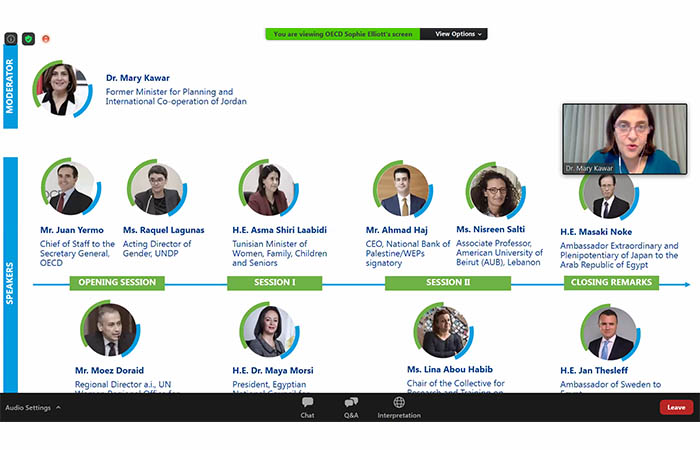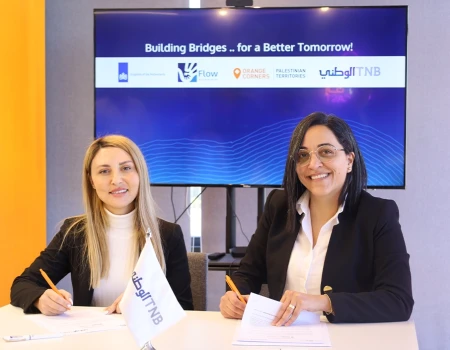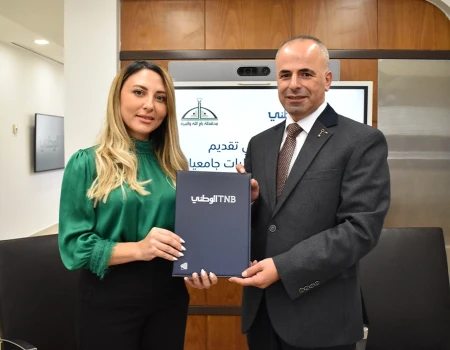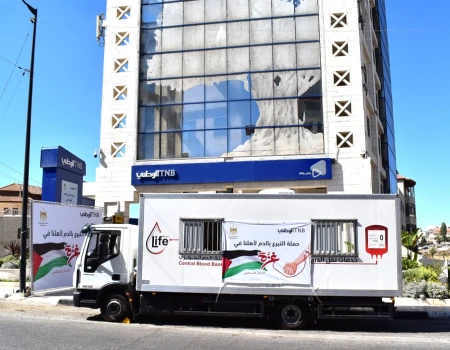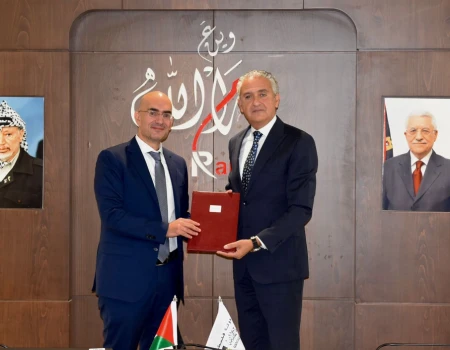On Wednesday 8th July, The National Bank (TNB), participated as a keynote speaker at a webinar hosted by UN Women, the Organization of Economic Cooperation and Development (OECD) and the United Nations Development Program (UNDP). Focusing on the impact of the Covid-19 pandemic on gender equality and women’s economic empowerment in the Middle East and North Africa (MENA) region, the session aimed to develop a gender-sensitive response to the crisis. The webinar was attended by regional policymakers, ministers, chief scientific officers and private sector representatives.
As a signatory to the Women’s Empowerment Principles (WEP), The National Bank’s General Manager Ahmad Hajhasan was chosen as a keynote speaker to highlight the proactive steps TNB has taken to ensure gender equality in the workplace, in business and the community during the pandemic.
In his speech, Mr. Hajhasan outlined that Palestine had begun 2020 with heavy economic burdens, due to the clearing crisis with Israel and its effect on the profitability of the business sector, and this difficult situation was complicated by the Coronavirus pandemic.
Speaking during the online session Ahmad Hajhasan said:
“The National Bank Group led the way in supporting the government during the Covid-19 crisis donating the sum of 2 million Shekels to the Palestinian government's Waqfet Izz Fund for affected workers and families; in making this donation and in all its other agreements, TNB gives preference to empowering women.”
Mr. Hajhasan also highlighted the role TNB played in collecting contributions from the private sector for the fund during the pandemic:
“Our Chairman Talal Nasereddin was selected by the Palestinian government to head the Waqfet Izz Fund, to mitigate the impact of the crisis economically in Palestine. Mr. Nasereddin and our team, who volunteered for the fund, helped raise a sum of $18 million to help families who were affected and workers who lost their jobs.”
Mr. Hajhasan also spoke about TNB’s experience in empowering women economically before the crisis, highlighting the “Hayati” program and its financing of interest-free women-led SME loans totaling $3.5 million. The Hayati program has directly contributed to Palestinian women’s financial inclusion ratios, noting that today, women make up 34.5% of TNB’s clients’ base, one of the highest percentages in Palestine and surrounding Arab countries.
He continued by emphasizing that The National Bank sees women as a major profitable sector and not as a marginal one:
“TNB invests in this segment because we believe our sustainability is directly connected to this essential part of our client base, their advancement is linked to ours; if their businesses prosper, so does ours.”
Ahmad Hajhasan announced that the Bank will allocate a sum of $100 million to support SMEs during the Covid-19 pandemic, of which a good percentage will be given to women-led enterprises.
In terms of TNB’s female employees, Mr. Hajhasan indicated that women make up 35% of its workforce, with the percentage increasing year on year, and with the percentage of female graduates in the country, in some fields, now reaching 60%, this is expected to grow further in coming years.
Outlining the importance of digitization and the development of high-tech banking services and solutions to facilitate access to finance for the different sectors of the society, Ahmad Hajhasan shared TNB’s experience launching its Digital Service Center and the other high-tech services to fulfill the needs of clients remotely.


